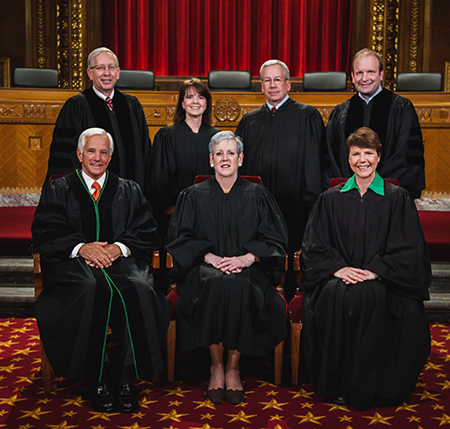In a decision announced this week by the Supreme Court of Ohio, employers throughout the state scored a victory. At issue in the case, Ferguson v. State of Ohio, et. al., was whether a worker alleging an injury could unilaterally delay an employer’s appeal to continue to receive benefits for up to an additional two years. The Ohio Chamber filed an amicus brief supporting the employer in this case and now, in a big victory, employers now definitively know that a worker cannot unreasonably delay an employer’s appeal.
Background
In a workers’ compensation case, disputed claims are referred to the Industrial Commission of Ohio (Commission) where there are is a three-level hearing process for most issues. The General Assembly also created a limited ability to appeal certain Commission decisions into the traditional court system. Either the worker or an employer has the ability to file an appeal in these limited instances. Due to quirk in the law, no matter which party files the appeal, the worker becomes the plaintiff in the lawsuit and the employer and Administrator of the Bureau of Workers’ Compensation become the defendant. Under traditional court rules, a plaintiff, who is typically the one bringing the lawsuit or appeal in non-workers’ compensation cases, can request to dismiss their case without prejudice so that it can be refiled at a later date. This can be done without the court’s consent. Also unlike traditional cases, rather than damages or financial compensation being determined once a decision is rendered, during a workers’ compensation appeal filed by an employer, the worker receives the benefits awarded by the Commission throughout the entire appeals process.
Thus, there was a financial incentive for workers to dismiss their case on the eve of trial, which typically takes a year from the date of filing to get to, and to then wait until the one-year refiling deadline to refile the case AND THEN it would still be another year until the case would make it to trial again. This could lead to an additional two years of benefit payments without the employer’s appeal even being heard. During this time, the benefit payouts would have a negative impact on employers’ workers’ compensation experience, possibly making them ineligible for savings programs and discounts. If the employer eventually won the appeal, an employer’s experience would be adjusted to exclude the injury but there was no way to recoup the money the employer may have lost due to being ineligible for the previously mentioned programs and discounts. Even self-insured employers would be forced to pay benefits during the appeal and then try to recoup the money if they eventually won the appeal. Recognizing this unusual and unfair dynamic, in 2006 the General Assembly passed a law requiring workers to receive the employer’s consent to dismiss a case where the employer filed the appeal.
Case
In the Ferguson case, the worker, Shannon Ferguson, allegedly suffered an injury in 2009 while working for Ford Motor Company. At the Commission, benefits were awarded for two claims. In 2012, Ford appealed the Commission’s ruling to the Cuyahoga Common Pleas Court. As the appeal progressed, Ferguson continued to be paid benefits as detailed above. Later, when Ferguson asked for Ford’s permission to dismiss the case pursuant to the 2006 legislation that the Ohio Chamber supported, Ford denied the request. Upon the denial, Ferguson filed an action alleging that the 2006 statute was unconstitutional for numerous reasons. Both the trial court and the Eighth District Court of Appeals sided with Ferguson deeming the law requiring an employer’s consent unconstitutional.
However, in the Supreme Court’s opinion, written by Justice Patrick DeWine, the Court determined that the legislature had a legitimate reason to enact the law stating that until this law’s passage, “Justice delayed paid.” The Supreme Court reversed the lower court decisions and upheld the 2006 law as constitutional.
In conclusion, this excerpt from the opinion says it all:
“The General Assembly saw what it viewed as an area of concern—that a claimant in an employer-initiated workers’ compensation appeal could unilaterally prolong the appeal process for the sole purpose of guaranteeing the continued receipt of benefits for at least an additional year. This resulted in a needless extension of a process designed to run quickly, financial effects on the system as a whole, and a waste of judicial resources. And so, the General Assembly changed the law.”
